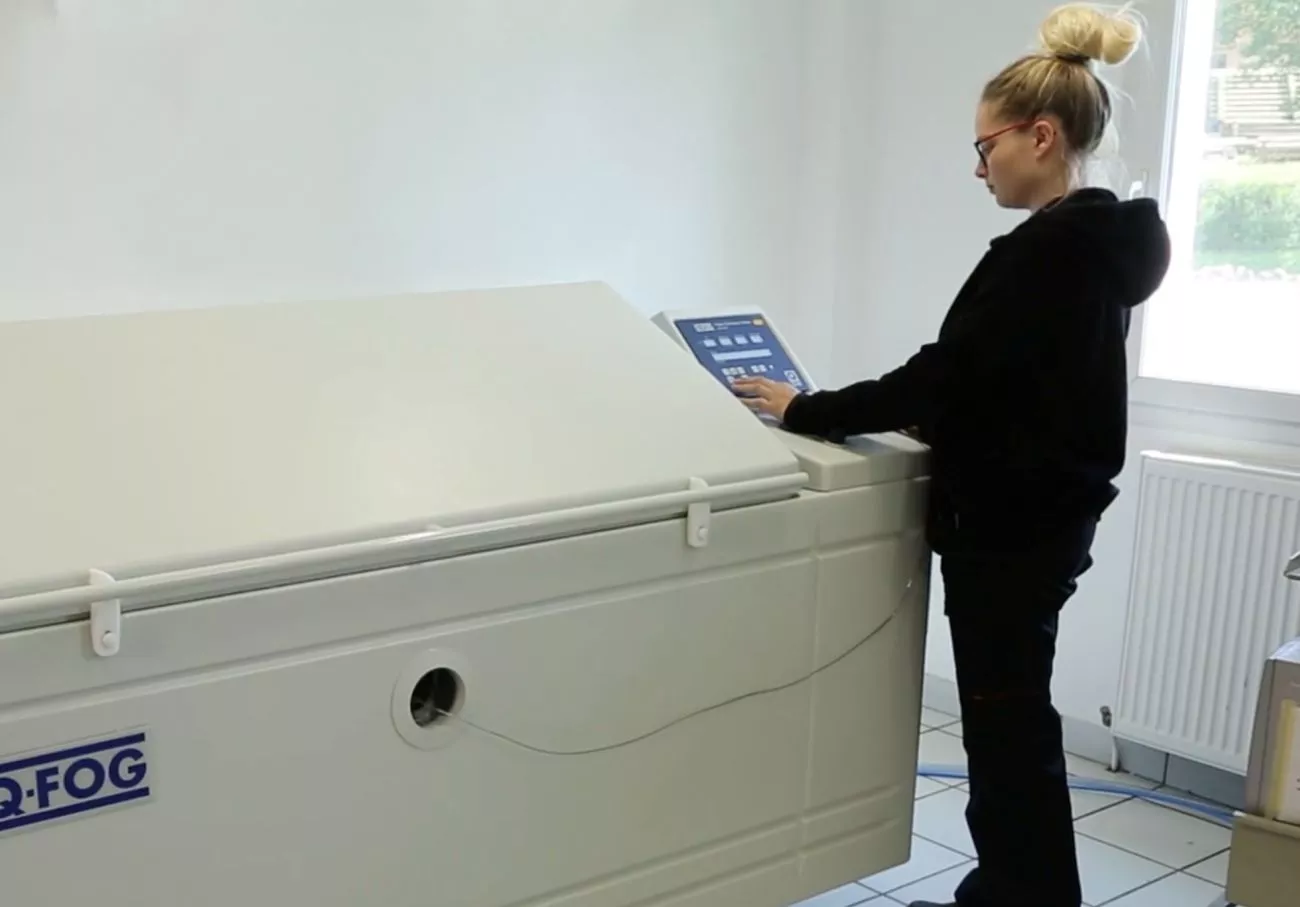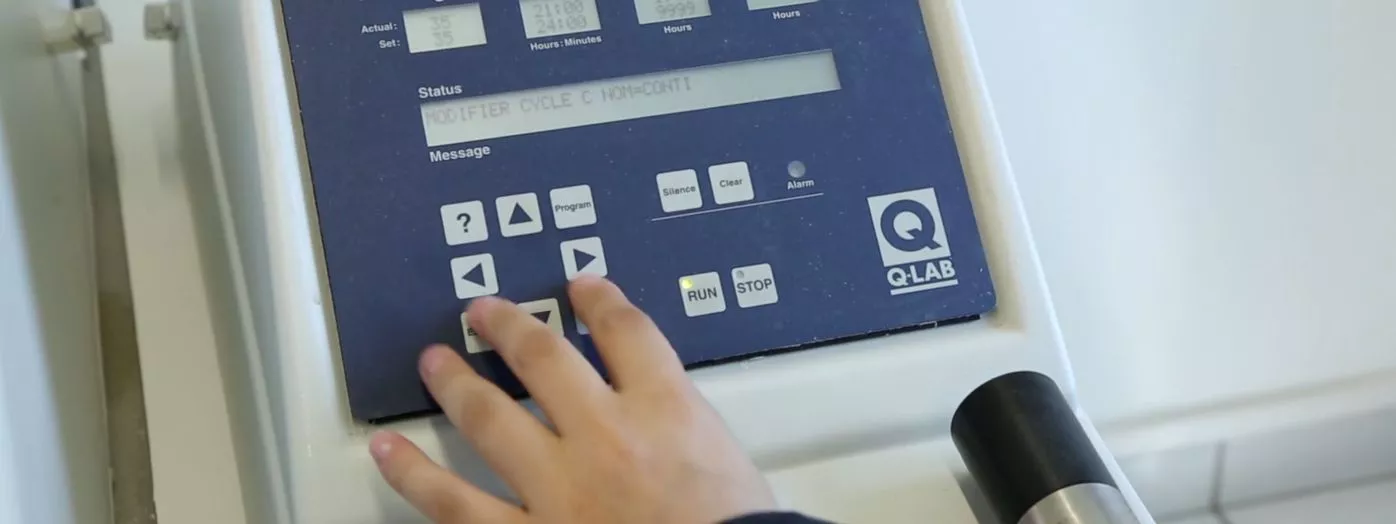Corrosion tests
Compare and validate the resistance of materials and equipment to corrosive atmospheres
Why carry out corrosion tests?
- Validate the resistance of equipment exposed to corrosive atmospheres.
- Prevent deterioration of materials.
- Check the effectiveness of coatings and surface treatments.
- Comply with industry standards.

Types of corrosion tests
- Salt spray tests: Exposure to a controlled salt spray atmosphere.
- Cyclic salt spray tests: Exposure to an atmosphere alternating salt spray and humidity with optional drying phases.
- Polluted atmosphere tests (corrosive gases): Simulation of aggressive industrial conditions.
Our corrosion testing services
Our testing capabilities and technical resources
Salt spray enclosures
- Number: >10 enclosures
- Useful volume: 0.5 to 13 m³
- Temperature: up to +70°C
- Relative humidity: up to 98%
- Neutral and acetic salt spray
Talk to our corrosion testing experts
Environmental chamber for corrosion in a mixed gas flow
- Number: 1 enclosure
- Useful volume: 100dm3
- Temperature and humidity control
Standards applicable to corrosion testing
- NF EN IEC 60068-2-11, NF EN IEC 60068-2-52, NF EN ISO 9227 : Salt spray tests.
- NF EN IEC 60068-2-60 : Gas corrosion tests.
- RTCA DO-160 : Environmental salt spray tests for aeronautical equipment.
- MIL-STD-810, AECTP 300, GAM EG 13: Military resistance standards. Salt spray tests for military applications.
- DIN 50021, VOLVO VCS 1027, GMW 3172, Renault D17 1058: Corrosion tests for the automotive industry.
Integrating corrosion testing into product development
- Preliminary analysis: Definition of requirements and test design.
- Carrying out the tests: Implementation in the laboratory according to your needs.
Needs
Discover a selection of additional resources that explore topics related to this page including regulatory contexts, technical articles, and specific areas of expertise. These materials provide further insight to help you better understand the key challenges and available solutions.
Contact us for a quote










